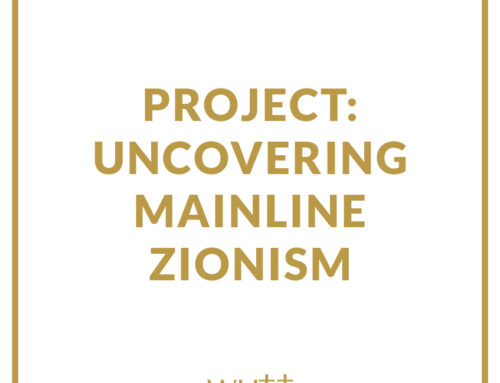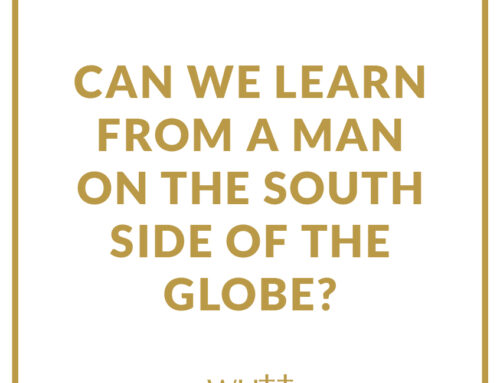Richard Armitage – Deputy Secretary of State, blamed for severe human rights violations, torture and death, in Latin Am under Reagan, made Ambasso President of Armitage Associates. Former board member for CACI International, the private military contractor, which “is being investigated by no less than 5 US agencies for possible contract violations” and “employed four interrogators at Abu Ghraib prison” in Iraq, one of whom was singled out by General Taguba in his report on abuses of Iraqi detainees at the prison, which Generals have stated cost the lives of US soldiers. One of the Iran-Contra plotters, U.S. Government stipulations in the Oliver North trial specifically named Armitage as one of the DoD officials responsible for illegal transfers of weapons to Iran and the Contras. Board member of Database Technologies (DBT)/ChoicePoint Inc, subsidiary of SAIC.
|
Paul Wolfowitz – controversial former deputy defense secretary pushing the Iraq War, lost his post as president of the World Bank, visiting scholar at the American Enterprise Institute (AEI) in Washington, DC. AEI houses former George W. Bush admin figures, former ambassador to the United Nations John Bolton and former chair of the Defense Policy Board Richard Perle. His connection with the Iraq War and his controversial choice to staff the bank with close associates and supporters of the Bush administration’s “war on terror” spurred widespread dissension within the bank’s staff and board.
|
|
Elliott Abrams Deputy National Security Adviser, Founding Member of PNAC, convicted (and later pardoned) on charges related to the Iran-Contra scandal, using behind-the-scenes tactics that don’t reveal his role, very careful about not leaving fingerprints, fought a rearguard effort within the Reagan administration aimed at blocking peace initiatives in Nicaragua that were supported by some Reagan officials, shunning negotiations in favor of confrontational, militaristic U.S. policies. Bush appointed Abrams chief human rights officer and then senior director of Near East and North African Affairs,
|
Zalmay Khalilzad – Unocal consultant, appointed 2nd in Afghanistan, the Bush-Cheney Defense Department transition team. He became an adviser to Defense Secretary Donald Rumsfeld and then shifted to the National Security Council, where he worked under Rice.
|
Dennis Ross – Camp David negotiator w Clinton, who blamed the rejection completely on Arafat, later disputed by others present, and by President Clinton himself.
|
Max Boot – fmr Editorial Editor of the WSJ, Boot is a contributing editor—along with the likes of Irwin Stelzer, Charles Krauthammer, and Robert Kagan—of the neoconservative flagship magazine the Weekly Standard, edited by William Kristol.
|
Norman Podhoretz Committee for Present Danger, Hudson Institute, Aside from Irving Kristol, few of the writers and ideologues associated with neoconservatism can claim as lasting an influence on the political faction as Norman Podhoretz
|
Eliot A. Cohen “the most influential neocon in academe,” Eliot Cohen is a prominent scholar of military affairs at the Johns Hopkins School of Advanced International Studies (SAIS)
|
Richard N. Perle Once dubbed the “Prince of Darkness” because of his advocacy of extremely hawkish anti-Soviet policies while in Ronald Reagan’s Department of Defense, served as chairman of then-Defense Secretary Donald Rumsfeld’ s Defense Policy Board (DPB) in the years leading up to the Iraq War gave him a privileged perch from which he helped shape Bush administration foreign policies.
|
Daniel Pipes Daniel Pipes, son of the well known anti-Soviet crusader Richard Pipes, is an outspoken promoter of the “Islamofascism threat” theory and is closely aligned with many high-profile neoconservatives, many of whom are associated with Pipes’ Middle East Forum, President George W. Bush nominated Pipes to serve on the board of the U.S. Institute of Peace (USIP).
|
Caspar Weinberger – Secretary of Defense under President Reagan, known for his roles in the Strategic Defense Initiative program (popularly known as Star Wars) and the Iran-Contra Affair (resulting in his indictment and later pardon).
|
R. James Woolsey fmr CIA Director (Tim McVeigh’s helper, which he cites, was “his” Iraqi, not Saddam’s)
|
Robert Zoellick – Deputy Secretary of State
|
Paul Weyrich – fake Christian right icon, CNP member, co-founder of Heritage has often acknowleged that he does not intend to “conserve” anything.”We are different from previous generations of conservatives,” Weyrich explained.”We are no longer working to preserve the status quo. We are radicals, working to overturn the present power structure of the country.”
|
Gary Bauer – CNP member, major figure of the Christian Right, former presidential candidate, key organizer of campaigns linking rightist pro-Israel Christian groups and conservative Christian evangelicals. A close friend of William Kristol, dates back to the Reagan administration, where he served in a number of posts under Secretary of Education William Bennett. vociferous advocate of an aggressive war on terror, Bauer compared today’s “anti-war left” to that of the 1960s, arguing that in both cases the “ugly aggression by the so-called peace movement” ultimately plays into the hands of those supporting war.
|
Gary Schmitt – co-founder of PNAC, resident scholar at the American Enterprise Institute (AEI) and author of numerous texts on intelligence reform and national security, second generation neoconservatives heavily influenced by the arcane political philosopher Leo Strauss, see Jim Lobe, “The Strong Must Rule the Weak,” Foreign Policy In Focus, May 12, 2003. “Is U.S. foreign policy being run by followers of an obscure German Jewish political philosopher whose views were elitist, amoral, and hostile to democratic government?”
|
Francis Fukuyama – The poorly executed nation-building strategy in Iraq will poison the well for future such exercises, undercutting domestic political support for a generous and visionary internationalism, just as Vietnam did. “Neoconservatism, whatever its complex roots, has become indelibly associated with concepts like coercive regime change, unilateralism, and American hegemony. (except it was ALWAYS that) What is needed now are new ideas, neither neoconservative nor realist, for how America is to relate to the rest of the world—ideas that retain the neoconservative belief in the universality of human rights, but without its illusions about the efficacy of American power and hegemony to bring these ends about.” came under the sway of Allan Bloom, an important follower of Leo Strauss
End of History: With the fall of the USSR, and American ‘liberalism’ remaining standing, Fukuyama contends, history has reached its destination. This is not a happy ending, however. The loss of great ideological conflicts will bring a consumer society, a universal homogenous state, bureaucratization, and ‘centuries of boredom.’ Nietzsche’s prediction may come true: we will become a civilization of last men— dull, satisfied customers— ‘without daring, courage, imagination, and idealism‘
|
Midge Decter wife of Norman Podhoretz (one of the key forefathers of neoconservatism), has been a major player for decades in the peace-through-strength ideological movement. She was a founding member of the hawkish Coalition for a Democratic Majority, served on the Committee on the Present Danger, directed the Nicaraguan Freedom Fund, and founded the Committee for a Free World. She continues to advocate hard-line policies from her perch at the neoconservative Institute on Religion and Public Life, and she is affiliated with the Project for the New American Century as well as the Heritage Foundation and Hoover Institution, and ACPC, a group “fomenting peace” with Al-Qaeda in Chechnya, along with CIA, Brzezinski, and some oil barons.
|
Thomas Donnelly Project for the New American Century: Fellow, American Enterprise Institute: Fellow, The National Interest: Former editor,
Lockheed Martin: Former communications director. argues that the U.S. military needs to be upgraded and expanded to meet the “strategic and military realities of our post-September 11 world.” According to Donnelly, “The gap between America’s strategic reach and its military grasp has reached a point of crisis.” Criticizing the Bush admin in 2005, he said “It’s time to stop thinking and start spending.” one of the few neoconservative ideologues to support U.S. intervention in Liberia in mid-2003.
|
Stephen Cambone former undersecretary of defense for intelligence, longtime associate of Donald Rumsfeld. collaborated with rightist and neoconservative outfits—including the National Institute for Public Policy (NIPP) and the Project for the New American Century (PNAC)—on developing hardline defense and security proposals just prior to the election of George W. Bush, regarded as a core member of a hawkish faction in the Bush administration. split hairs on whether the Geneva Conventions were applicable to intelligence gathering in Iraq, defense of the role of military intelligence in interrogations.
|
Ellen Bork – daughter of conservative icon and former Supreme Court justice nominee Robert Bork, deputy director of the Project for the New American Century.
|
Paula Dobriansky – Undersecretary of State for Democracy and Global Affairs, Hudson Institute: Former fellow, supporter of HUMAN RIGHTS and against TORTURE, unless the US or it’s allies is doing the torture, in which case it becomes “abuses”.
|
Morton I. Abramowitz |


